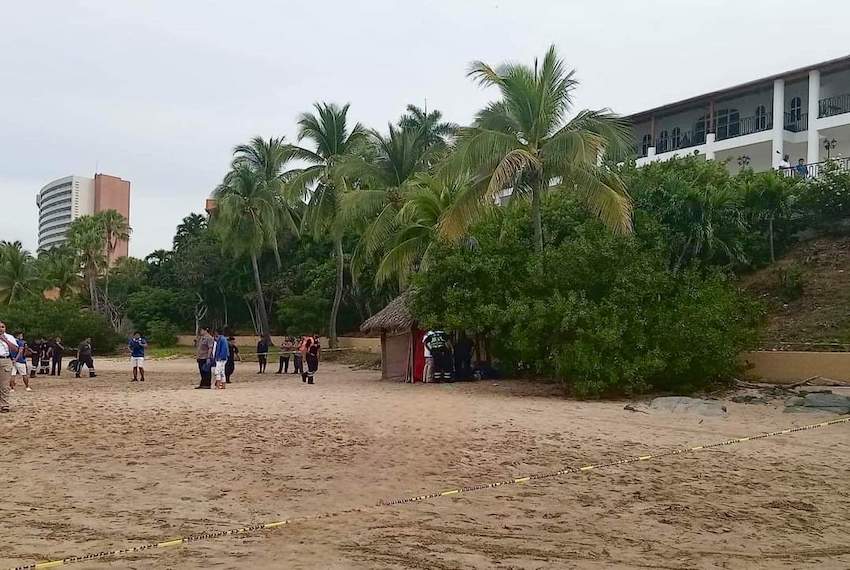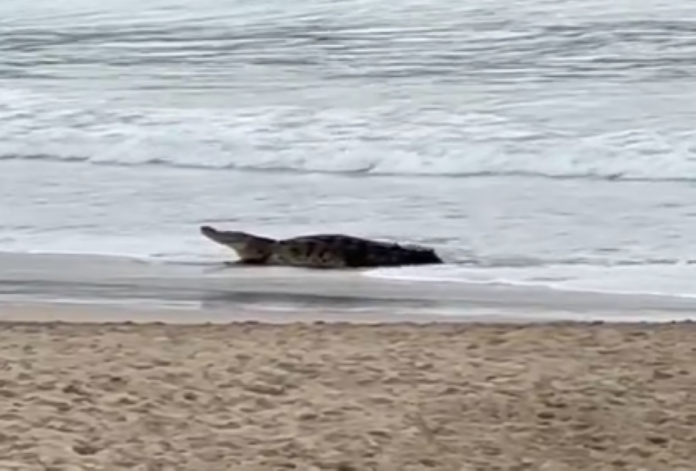Videos of a crocodile wading in the surf and swimming near a beach in Ixtapa, Guerrero, went viral this week, prompting local officials to issue a crocodile warning.
The videos were taken Wednesday at El Palmar Beach in Ixtapa’s main hotel zone, about 3 kilometers away from where an animal attack just off the shore killed one person and severely injured another two weeks earlier.
Authorities in the resort area of Ixtapa-Zihuatanejo responded to the videos by warning about the presence of crocodiles, who live in the area’s mangrove swamps and lagoons.
Moreover, there is a small wildlife/crocodile reserve located near Quieta Beach, where a Belgian tourist staying at the adjacent Club Med Ixtapa Pacific resort was killed Dec. 13.
The type of animal that killed him has yet to be specified by local officials, but it was definitely a shark, according to the husband of the woman who was severely injured in another attack moments later.
In a detailed email sent to Mexico News Daily that included grisly photos of his wife’s injuries, Mark Maerowitz of California said he wanted to “put an end to what seems to be an effort to obscure the truth in favor of preserving revenue.”

He wrote that his wife, a nurse practitioner at the Veterans Administration in Los Angeles, “absolutely saw the tell-tale shark fin, and estimated the shark’s size to be at least two meters.”
The shark’s “razor-sharp teeth” cut through his “wife’s skin like a scalpel, and you can see the radius of the bite,” he added, noting that “this information was given to multiple emergency personnel.”
Still, the warning this week was for crocodiles, which are often seen in this area of Guerrero. The specimen Wednesday was reported to be 3 meters in length.
The municipality’s Ecology Department issued a six-point list of “General Recommendations for Crocodile Sightings.” One of them is to maintain a body-length distance from the crocodile, both on the shore and in the water.
“Do not approach or stay close if you notice the presence of a crocodile,” the warning states. “If you see one while in the water, stand up, move calmly toward deeper water and leave the area.”
It also warns to avoid “risky hours” at night or very early morning, do not sleep or nap on beaches in crocodile areas and mind your pets.
After the Belgian man, 76-year-old Joseph Bynens, was bitten — “which severed the femoral artery” in one of his legs, “and by the time they dragged him to shore, he had already died,” Maerowitz wrote — Quieta Beach in Ixtapa’s secondary hotel zone was closed for a few days but then reopened for the holiday period.
After that attack, Zihuatanejo Mayor Jorge Sánchez Allec said an analysis would be conducted to determine if it was a shark or crocodile, but to date no results have been provided.
With reports from El Universal and EFE
